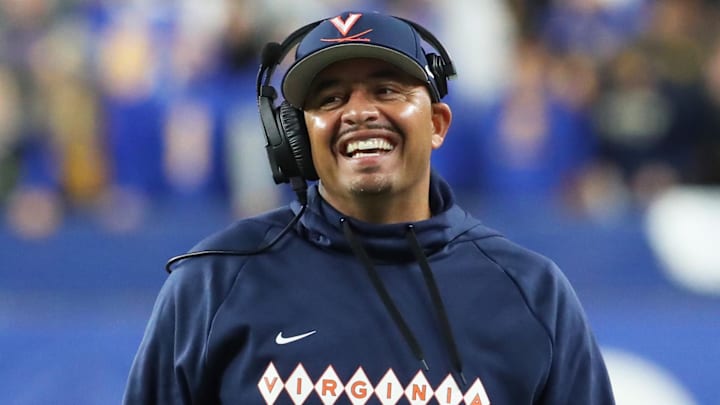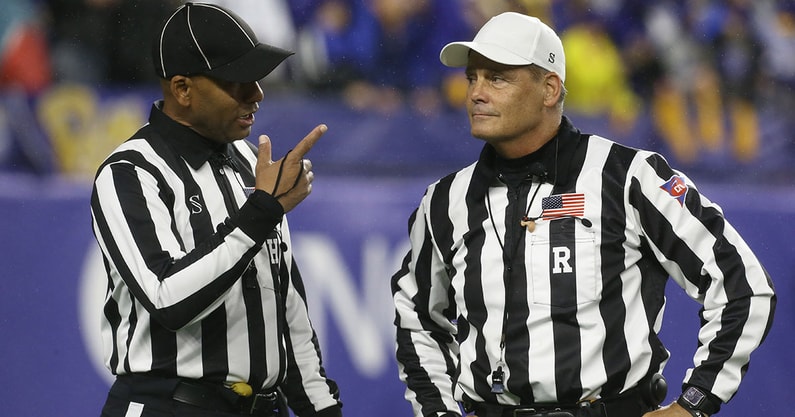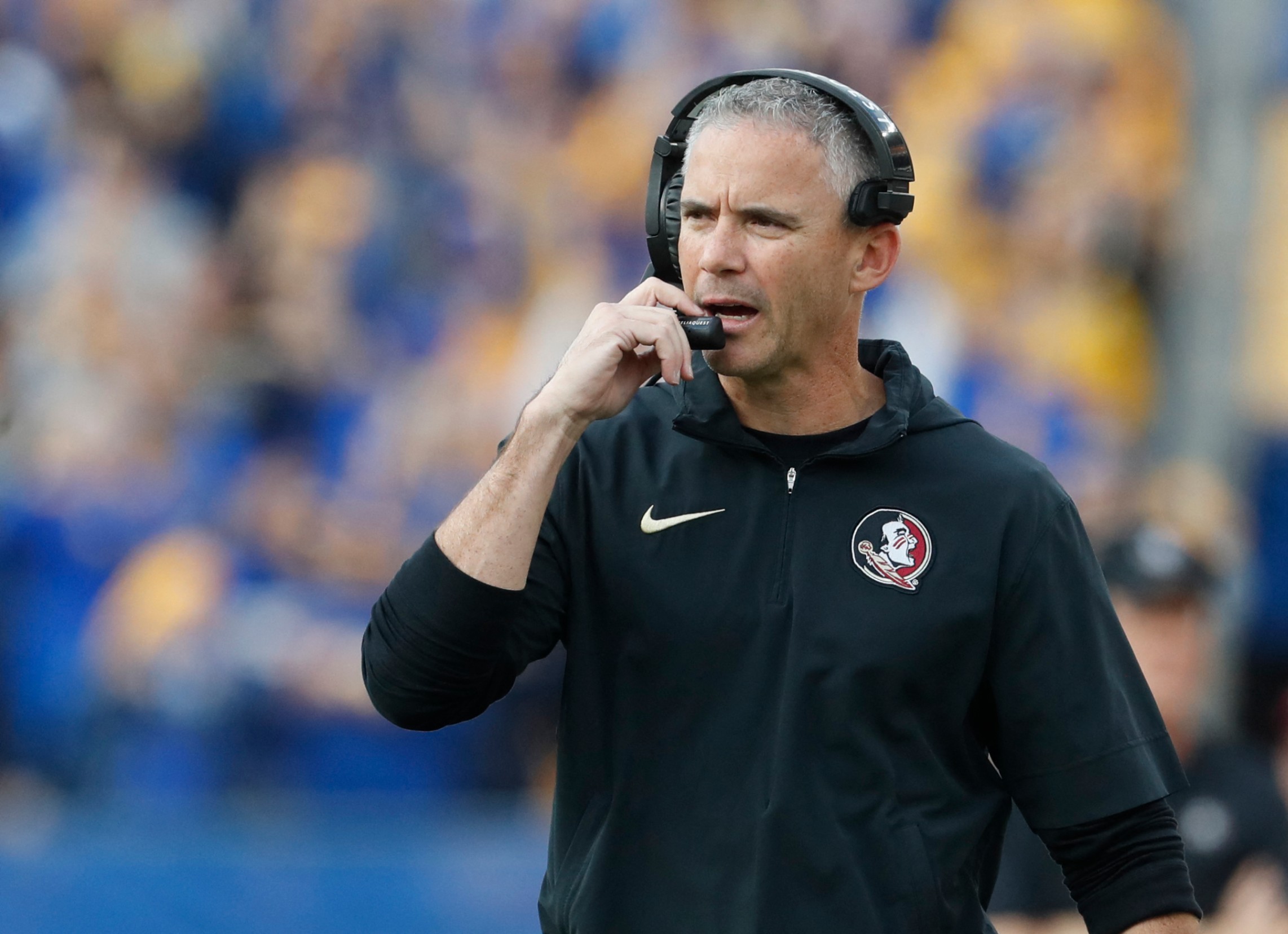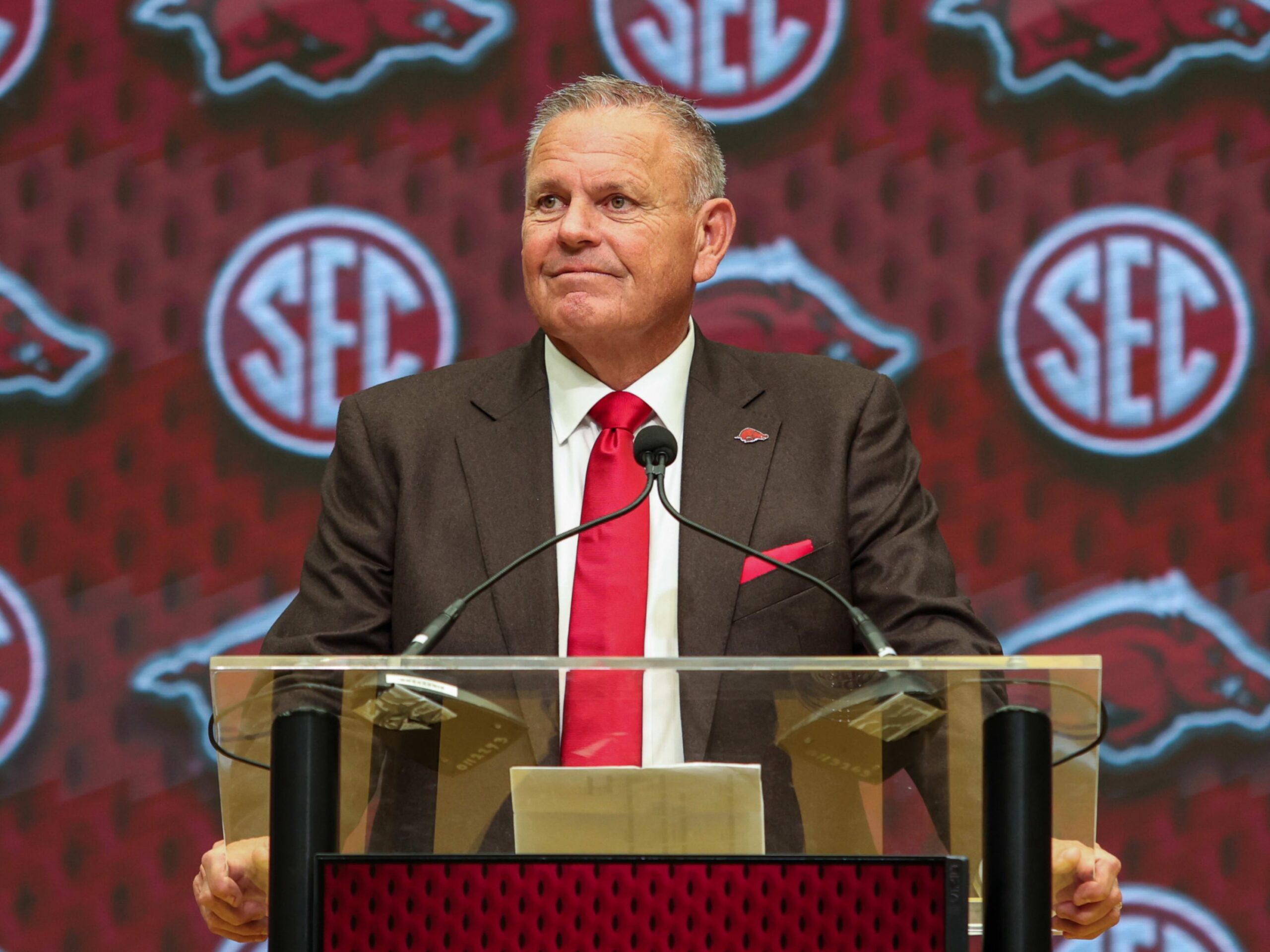ΒᎡΕΑΚΙΝG ЅΗΟϹΚᎳΑᏙΕ: ᖴlοrіdа Ѕtаtе һеаd ϲοаϲһ Μіkе Νοrᴠеll іɡпіtеѕ fіrеѕtοrⅿ аftеr blаѕtіпɡ Ꮩіrɡіпіа’ѕ ᴡіп аѕ.




Calling Notre Dame’s Victory “Unfair and Stained by Bias”

When Arkansas head coach Sam Pittman took to social media following his team’’s
narrow defeat to Notre Dame, few could have predicted the storm that would follow.
In a bold and unfiltered statement, Pittman declared that Notre Dame’s win was
“unfair” and “stained by referee bias,” igniting a fierce national debate about
officiating standards, sportsmanship, and the very integrity of college football.
The controversy began only hours after the final whistle of Saturday’s matchup, a
game that ended with Notre Dame pulling away in the fourth quarter.
For many neutral observers, it appeared to be a hard-fought contest with moments
of brilliance on both sides.
But Pittman’s comments painted a different picture.
According to him, the outcome was shaped less by athletic performance and more
by questionable decisions from the officials that tilted the field toward the Fighting
Irish.
Pittman Points to Video Evidence

The Internet Erupts

Marcus Freeman Fires Back

A Larger Conversation About Officiating
Beyond the heated back-and-forth between Pittman and Freeman, the incident has
sparked a broader conversation about officiating in college football.
Critics argue that inconsistencies and human error have plagued the sport for
years, and high-profile controversies like this one only erode public confidence.
Suggestions ranging from increased use of replay review to greater transparency in
referee training and accountability are being revisited with new urgency.
For Arkansas players and fans, the sting of the loss is now coupled with the belief
that victory was taken from them unfairly.
For Notre Dame, the focus is on protecting the legitimacy of their win and keeping
momentum as the season progresses.
What Comes Next?
The Southeastern Conference (SEC) and the NCAA have so far declined to
comment on Pittman’s accusations, though insiders suggest that officials are
reviewing both his remarks and the disputed plays.
It remains unclear whether Pittman will face disciplinary action for publicly criticizing
referees, a move that often leads to fines or reprimands in professional leagues
and, increasingly, in the college game as well.
What is certain is that this controversy won’t fade quickly.
With viral videos continuing to rack up millions of views, debates raging on sports
talk shows, and passionate fanbases digging in their heels, the Arkansas-Notre
Dame clash will be remembered not just for the final score but for the uproar that
followed.
For Pittman, the risk is clear: by standing so publicly against officiating, he may face
backlash from league authorities.
But for many Razorback fans, he has become a symbol of their frustration — a
coach unafraid to speak out against what he views as injustice.
For Freeman and Notre Dame, the goal now is to shut out the noise and prove their
victory was earned, not gifted.
As the season moves forward, one question will linger: was this simply a heated
post-game outburst, or will Pittman’s claims mark the beginning of a deeper
reckoning over fairness in college football?





